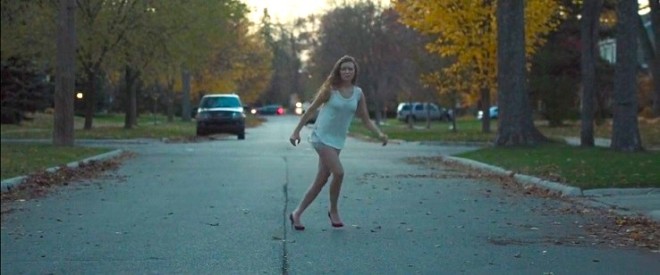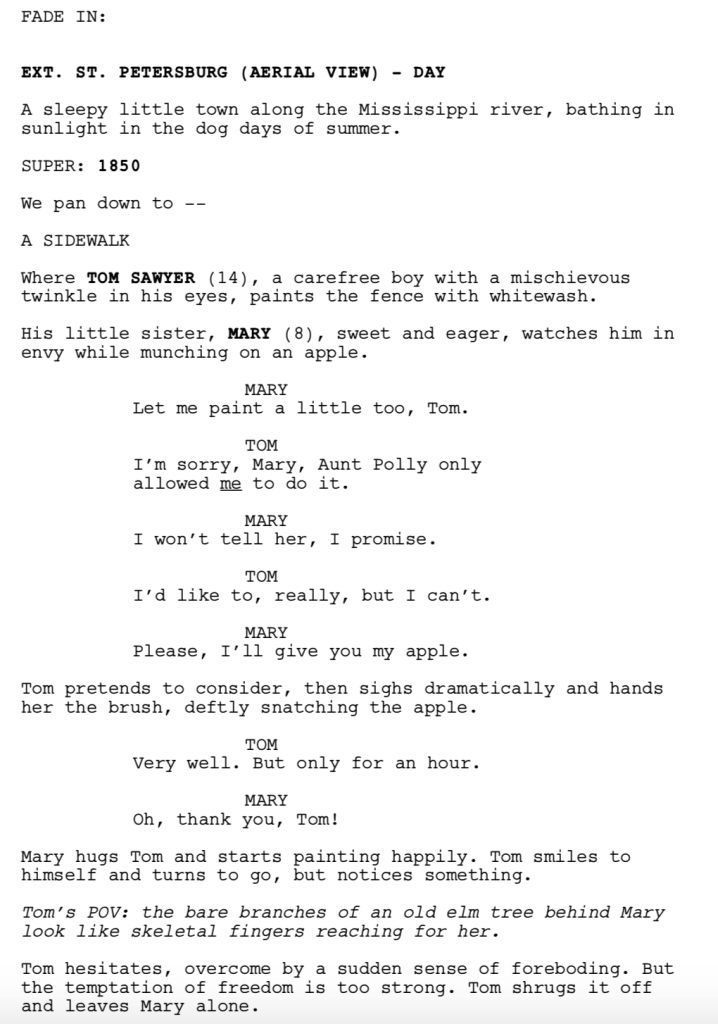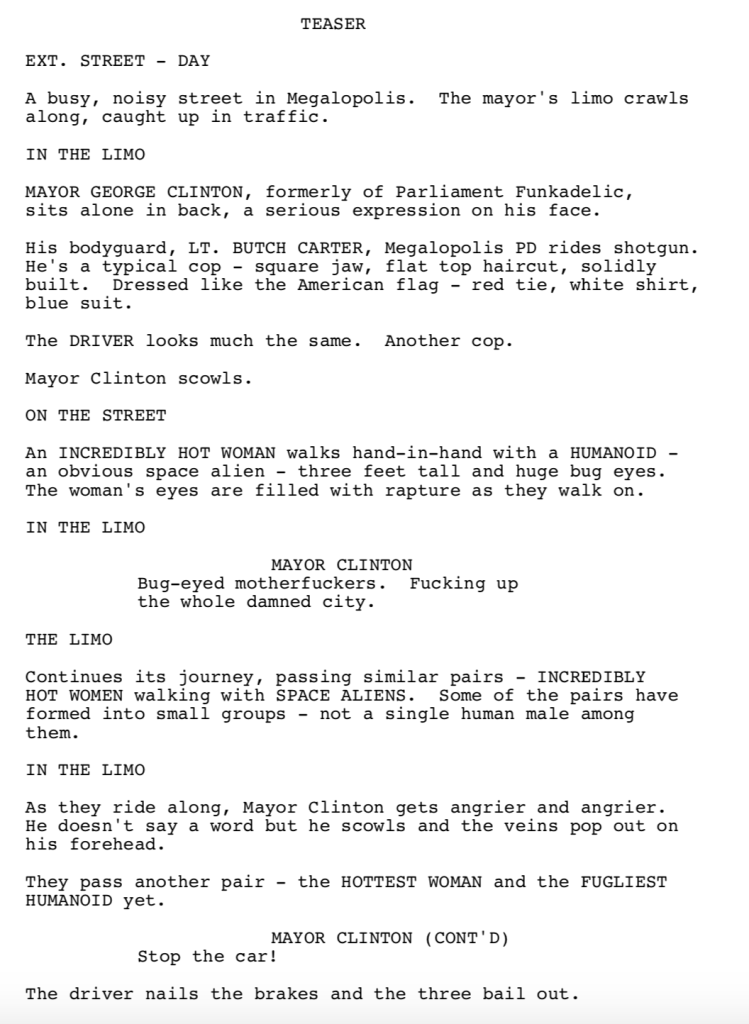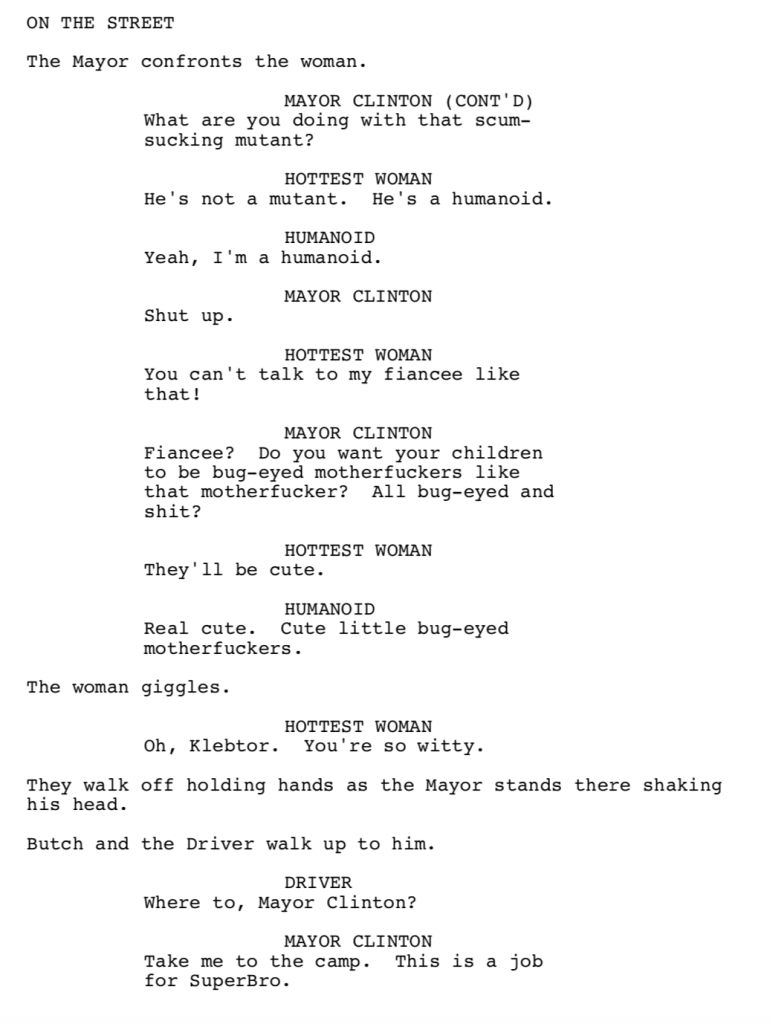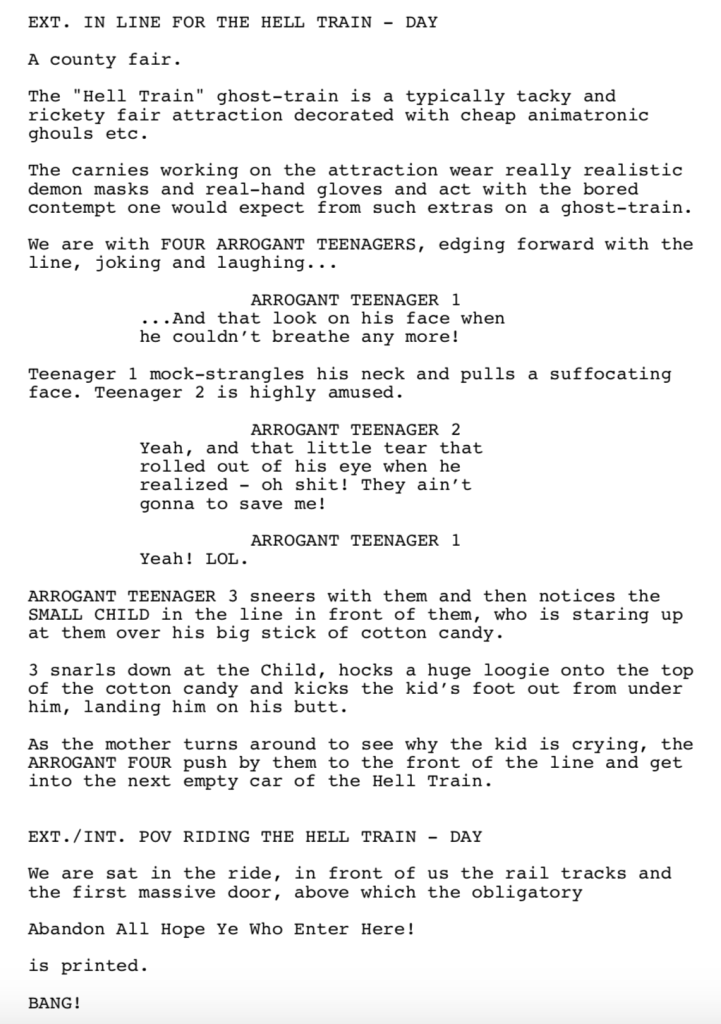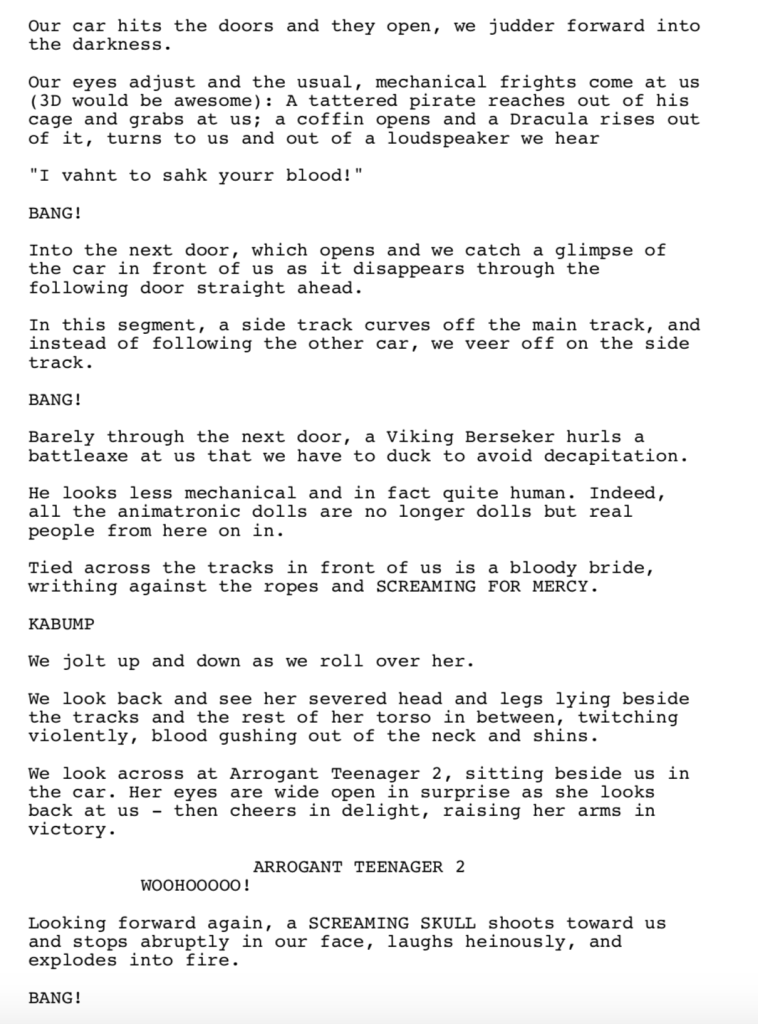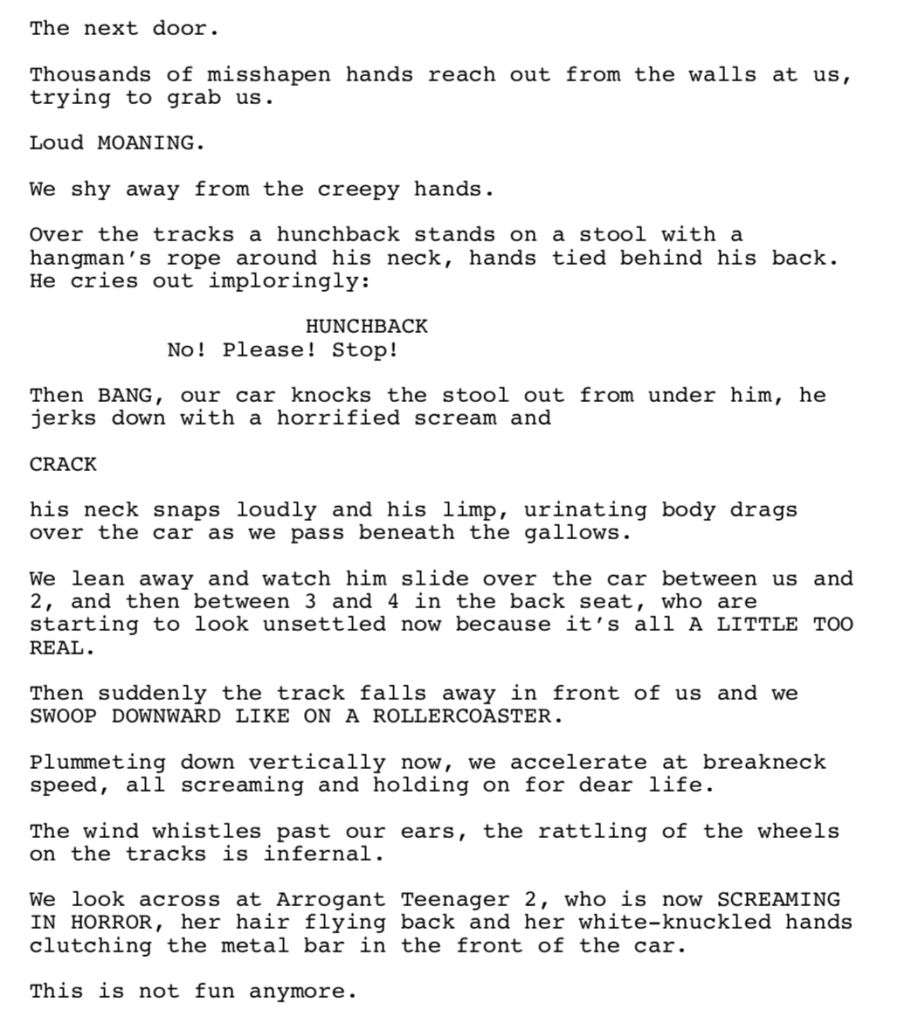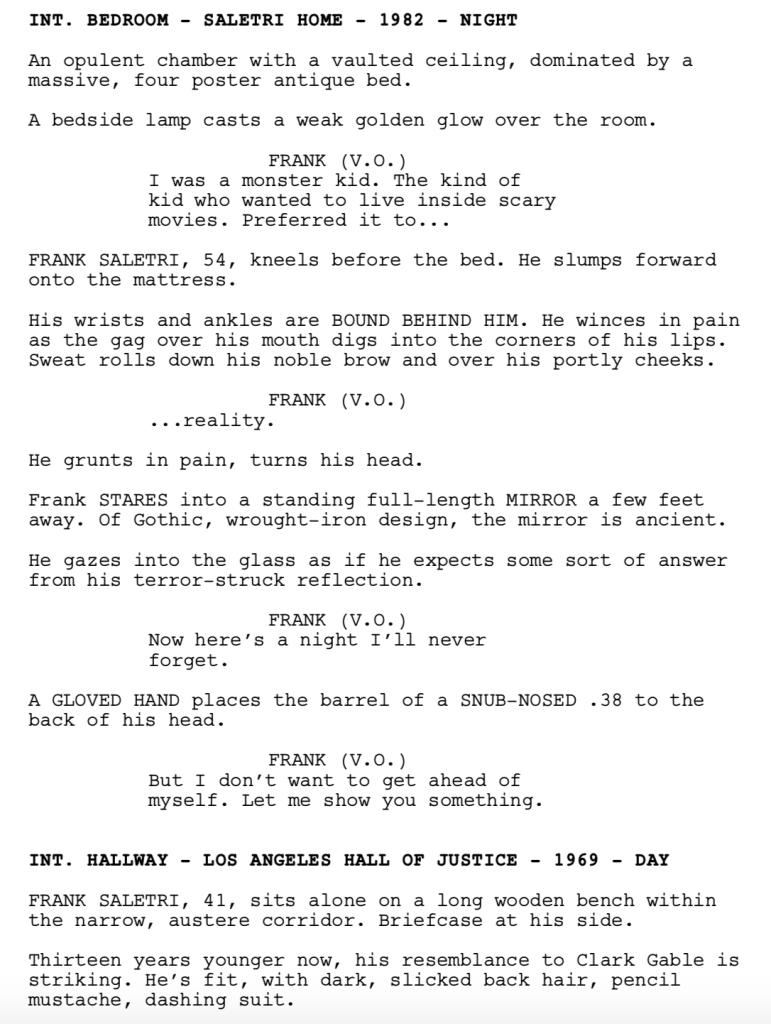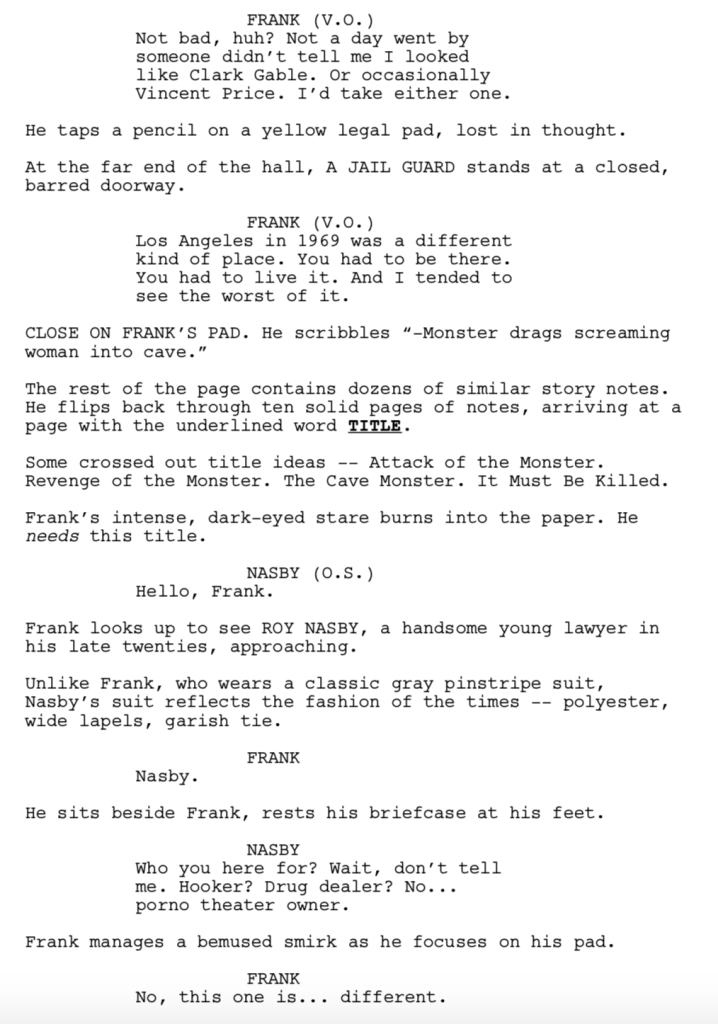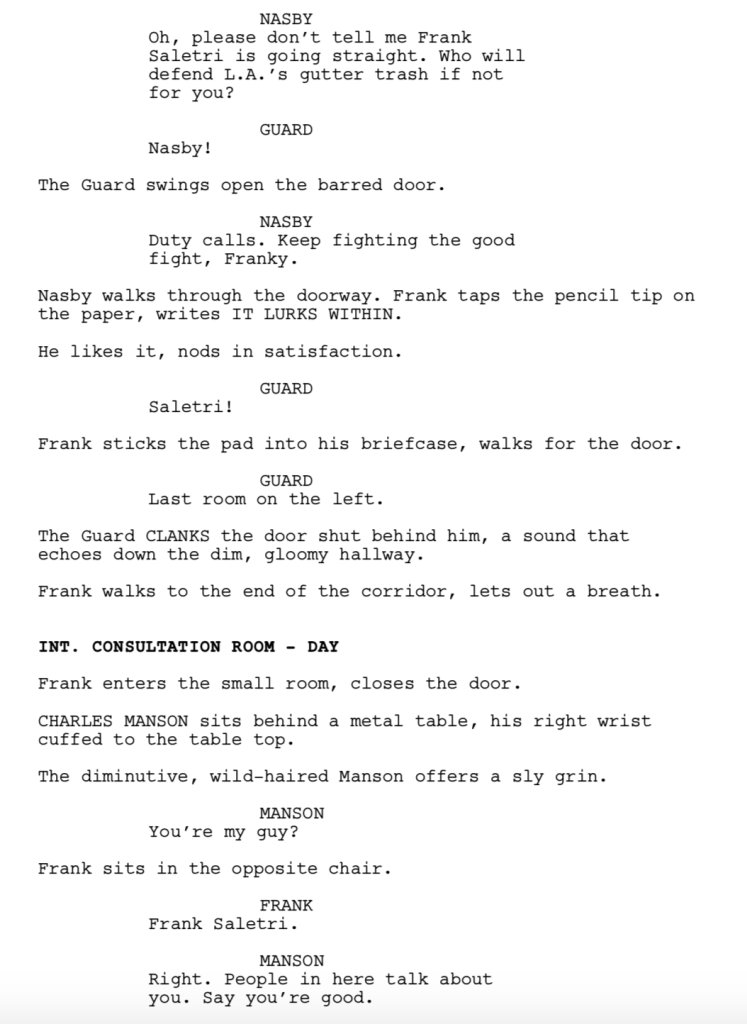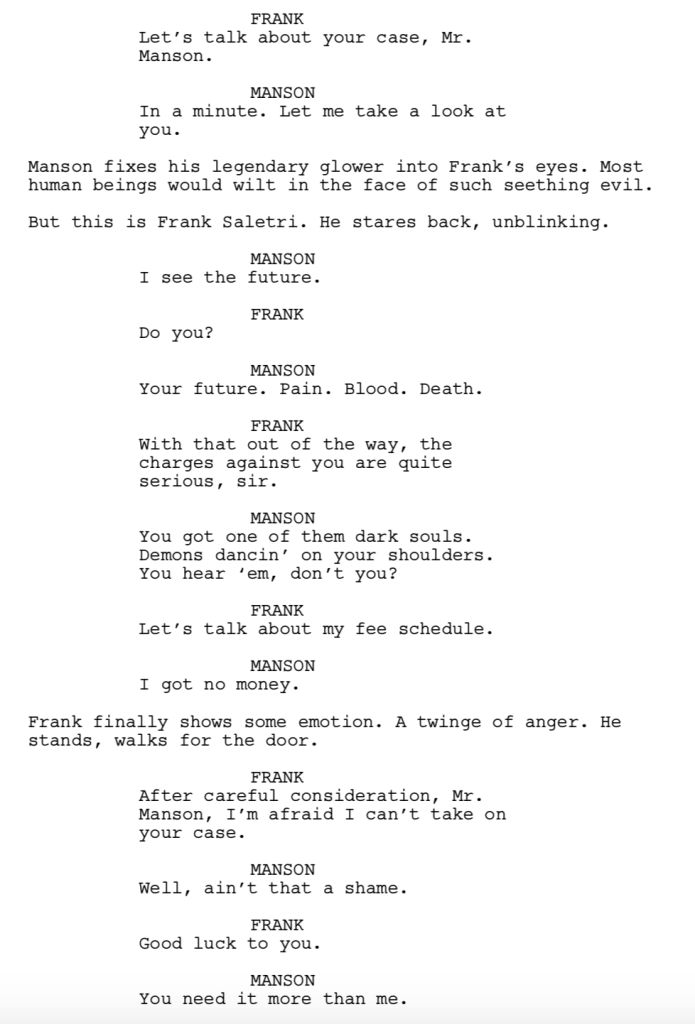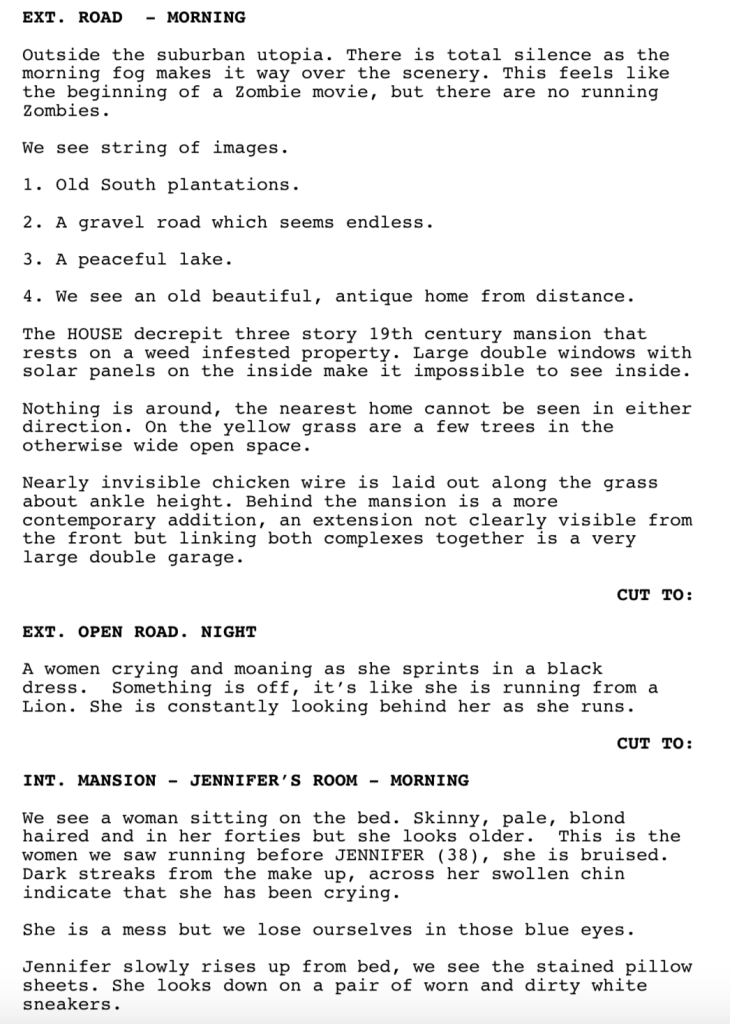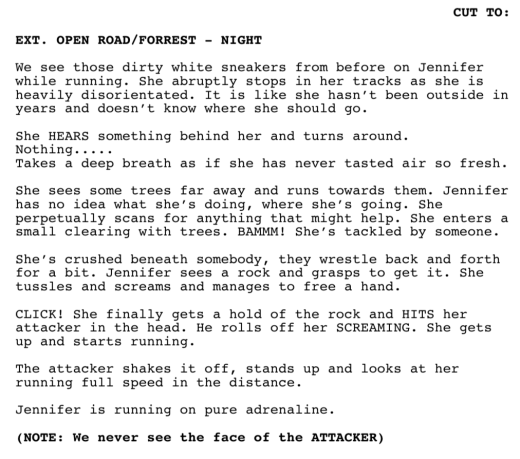Just how savage will I be in the First 10 Pages Challenge? You’re about to find out. Today I’ll be posting real submissions from you guys, cutting out at the exact moment where I became bored and quit. I’ll then explain why I stopped reading in the hopes of teaching you what not to do.
For those of you unfamiliar with the First 10 Pages Challenge, read the original article here. The challenge asks you to write under the assumption that the reader will stop reading the second they’re bored. Therefore, you must craft a series of scenes that are impossible to put down. Some of you have complained this type of writing only works for certain genres. WRONG. I have read scripts in every single genre that have hooked me from the very first line.
The competition is open until Sunday, February 10th, 11:59pm Pacific Time. Send your pages to carsonreeves3@gmail.com with the subject line “FIRST 10 PAGES.”
Let’s get into it!
Starting with a “sleepy little town” isn’t exactly grabbing the reader from the very first sentence. Seeing the year “1850” also implies this is going to be slow. The introduction of Tom Sawyer doesn’t do much for me as I’m not a huge Tom Sawyer fan. But at the very least, it’s a known name, and therefore inspires me to read a little longer. This is followed by a scene in which Tom and his sister… paint a fence?
We’re talking the very first scene in your movie here. And it’s a fence-painting scene? That’s not very exciting. I read on, losing interest quickly. Finally, something happens on the bottom of the page (the tree reaching for Mary), but while this would seem to be a big deal, it obviously isn’t since Tom doesn’t do anything about it. Granted, my disinterest in Tom Sawyer as a character colored some of my reaction here. But I still think this is an uninteresting way to start a script. As such, I’ve chosen not to continue.
Okay, we’re starting on a busy noisy street. Already, that’s better than a sleepy little town! However, the script almost immediately throws me. “MAYOR GEORGE CLINTON, formerly of Parliament Funkadelic.” I’m not sure what that means. It seems like we would need context for this but the writer assumes we know what he’s talking about.
The introduction of aliens provides the page with a semblance of intrigue, but it feels messy. Assuming these aliens have been around for awhile, why is it that the Mayor, of all people, is confused about their actions? The script is weird enough to get me to the second page, but the experience is proving too “off the cuff” for my taste. The cherry on top is “This is a job for SuperBro.” So we’ve just gone from aliens to superheroes? I’m sensing a sloppy unhinged ride.
This is an interesting one because something is actually happening here. We’re building up suspense before this ride and there’s a clear plan in place from the writer. He makes us dislike these characters so that we’ll want to see their comeuppance.
But there’s something haphazard about the writing. It’s too quick and empty. There’s no nuance to anything. Kicking a kid so that he falls down? I understand making these characters unlikable. But that’s so over-the-top as to be unrealistic. This was the first moment where I lost confidence in what I was reading.
Another problem with this scene is that instead of making us root for a character we do like, you’re making us root against characters we dislike. That’s never going to be as powerful. We care about situations the most when we can identify with and root for the character involved. Not saying you can’t start this way. Only that when you do, you’re placing yourself at a slight disadvantage.
Once we get on the ride, everything happens too quickly. We’re not building up to these horrifying moments enough. This is where the First 10 Pages Challenge can get confusing. Just because I want you to hook the reader right away doesn’t mean your scene needs to move at a breakneck pace. If you show us a killer in the house and cut outside to the blissfully ignorant owner, who’s coming home, you can play the next 2 pages out as slowly as you like because we’re going to stick around no matter what to see what the killer does.
I would’ve milked this entire scenario more. I would’ve painted a more elaborate picture of this carnival and this ride. I would’ve gotten to know the characters a little better. Have them talk about the rumors about this ride, maybe. And then I would’ve taken my time between each event that happens on the ride. Cause right now this feels rushed and sloppy, which is why I stopped reading.
The first moment here is somewhat shocking. But it’s not, “Oh my god,” shocking. And on top of that, it’s too short. Nothing happens. It’s just some guy tied up in a room. The scene needed to be longer and probably needed another character. Shock value is empty. It titilates, but only momentarily. It’s better to build a full scene with conflict or suspense than it is to show us a shocking image.
This mistake is mirrored a couple of pages later when we meet Charles Manson. Charles Manson is pure shock value. So you’ve got our attention. But his scene is weak. He says a few trippy things and we’re out of there within a page. If you wanted to really grab us, ditch the BDSM opener and start in the courthouse where we see Frank waiting. Imply that he’s waiting to meet someone very important. This will open up a line of suspense. We’ll want to find out who. Take us through the long walk to get there, like Clarice going down to see Hannibal Lecter, except here, we’re wondering who the hell Frank is going to see. Then, when you introduce Charles Manson, build a long dialogue scene around him. I mean, this is Charles freaking Manson. Use him!
These pages aren’t bad by any means but there’s nothing here that tells me I HAVE TO READ ON. And remember, that’s the challenge. The challenge isn’t to get me to begrudgingly read on because the pages are okay. It’s to make it impossible for me not to read on.
First thing I noticed is the denseness of the first page. By no means a script killer, but it means a tougher read. Then we’ve got this numbering thing. That immediately takes me out of the experience. The running girl provides a level of intrigue. But do you know how many running girls I’ve read at the opening of scripts? Hundreds. What’s different about this one? That she’s wearing a black dress? That’s not enough.
The writer uses a cross-cutting style, which is a risky choice. Done well, it can be used to build suspense and create a question the reader wants answered. Done shoddily, it can be confusing, even annoying. Like, “Why are we doing this?” This leans more towards the latter than the former for me.
This is important for writers to remember. Early on, you don’t want red flags. By themselves, they can be ignored. Combined, they convey a script that’s not worth continuing. So on the 11th line, we get this sentence: “The HOUSE decrepit three story 19th century mansion that rests on a weed infested property.” Numbers. Slightly janky cross-cutting choice. Now a sentence mistake. That’s three red flags.
To the writer’s credit, there’s something happening here. But it’s messy. The construction of the scene feels off. Ditch the cross-cutting and focus on the girl. See if you can give us a “girl running from something” scene that’s never been done before. It Follows was a great example of this. This is what separates the men from the boys, people. You gotta come up with a good idea for a scene, be original, execute it in an interesting way, and not make any mistakes that could cause the reader to be confused. I had to stop and go back a couple of times to figure out what was happening here. That’s a death sentence early on in a read, and its’s the reason I tapped out.
So what do you guys think? Is my assessment of these pages correct? Or am I being too harsh? Would you keep reading on any of these? Let me clarify that question because it’s an important one. I don’t mean, “Would you keep reading because this is a screenwriting site, you want to give writers a chance, and these pages are decent enough for you to see if there’s more there?” I mean, if some random person e-mailed these scripts to you and you started reading them, would any of them be impossible for you to put down?
Cause that’s the goal here. That’s what we’re trying to achieve.
If these were your scripts, don’t be discouraged. Take the feedback, rewrite the pages, or start a new script altogether and submit that one. We’re all trying to learn here and I feel like this exercise has the potential to help everyone.
Good luck!

